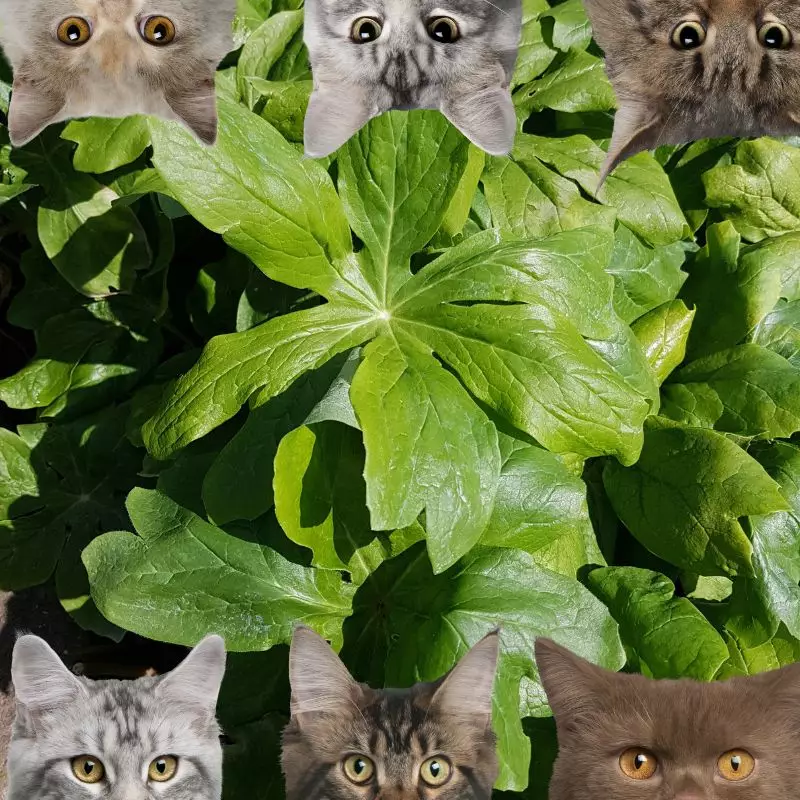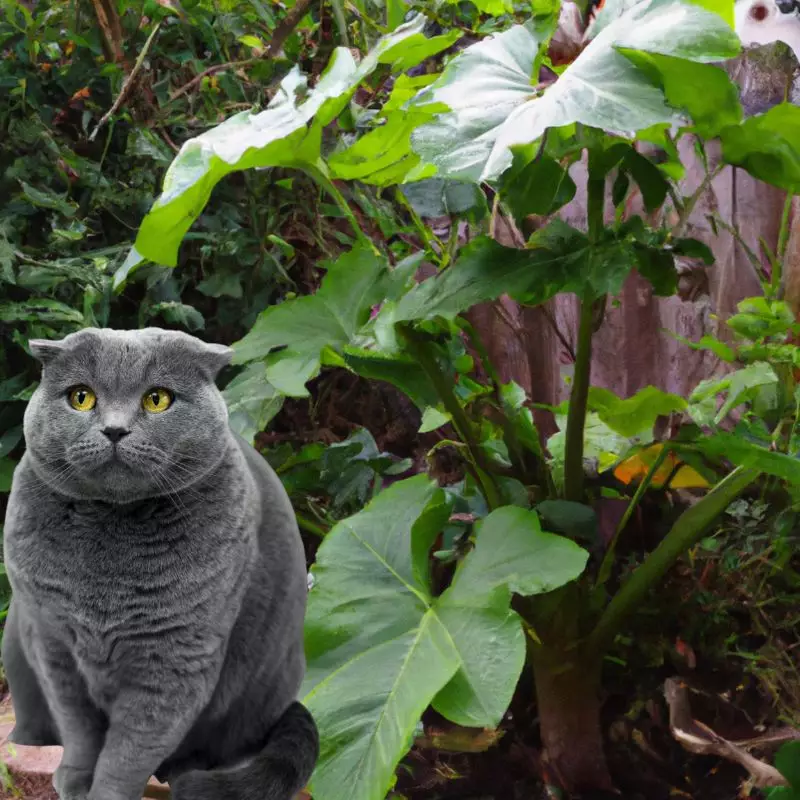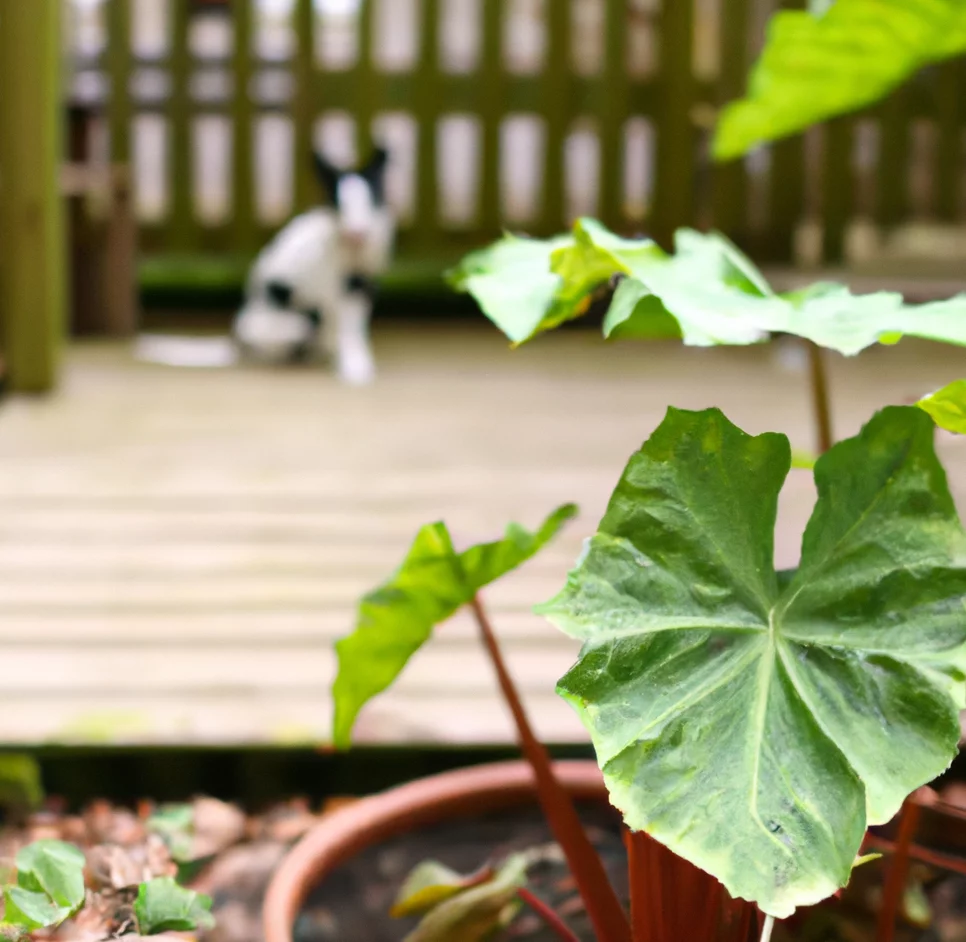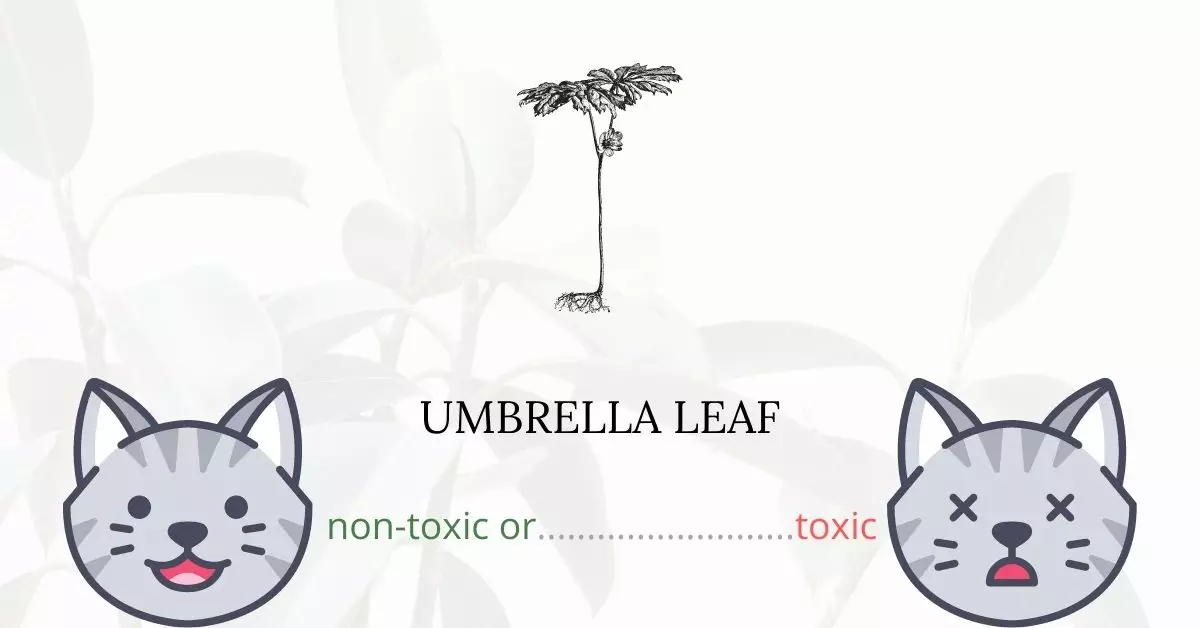Yes, Umbrella Leaf, also known as Indian Apple, American Mandrake, or Mayapple, is indeed toxic to cats.
This article has been compiled in collaboration with a team of experienced DVMs (doctors of veterinary medicine) who have enriched this text with their vast knowledge and expertise on the potential risks various plants, in this case, Umbrella Leaf, pose to cats. Through their invaluable contributions, we are committed to delivering accurate, reliable, and up-to-date information to help keep your pets safe. Additionally, our findings are corroborated by research from high-authority websites such as ASPCA and PetMD, ensuring every piece of information is backed by credible sources.
The toxin found in the Umbrella Leaf is a glycoside known as podophyllotoxin, which is swiftly absorbed into the tissue. When cats ingest or come into contact with this ground cover plant, they can exhibit symptoms such as gastrointestinal distress, including vomiting, diarrhea, drooling, and also cutaneous irritation. By being informed about the toxicity of such plants, cat owners can take adequate precautions to prevent any harm to their pets.
Clinical Signs of Umbrella Leaf Poisoning in Cats

The Umbrella Leaf, laden with podophyllotoxin, a potent glycoside, induces a range of clinical signs upon ingestion, contact, or inhalation due to its rapid absorption by the tissue. Below, each symptom is described along with an explanation of its occurrence when a cat is exposed to the Umbrella Leaf plant.
- Gastrointestinal upset (vomiting & diarrhea): This occurs as the toxin irritates the gastrointestinal tract, leading to inflammation and resulting in vomiting and diarrhea as the body tries to expel the harmful substance.
- Abdominal pain and Colic: The irritation and inflammation in the gastrointestinal system also induce severe abdominal discomfort and painful cramps, manifesting as colic in affected cats.
- Hypersalivation (excessive drooling): This is a common symptom, indicative of nausea or oral irritation, resulting from the body’s response to the ingested toxins.
- Panting: The absorbed toxin can lead to increased respiratory rates as the cat’s body attempts to alleviate the distress and regulate its internal state.
- Swelling of the muzzle (intermandibular area, eyelids): The contact with or inhalation of the toxin can cause localized inflammation and swelling in the exposed areas, typically around the muzzle and eyelids.
- Ulcerative Dermatitis: The toxin can induce severe skin irritation, leading to the formation of painful ulcers on the cat’s skin, particularly if the cat has made contact with the plant.
- Hyperactivity: Some cats may exhibit heightened and erratic activity levels due to the distress and discomfort caused by the toxin.
- Lethargy: Conversely, the overall physical distress can lead to decreased energy levels and lethargy as the cat’s body struggles to cope with the toxin.
- Coma (rare): In severe cases, the overwhelming presence of the toxin can depress the central nervous system to the point of inducing a coma, though this is a rare occurrence.
Understanding these signs is crucial for early detection and intervention, thereby minimizing the adverse effects and potential long-term damage caused by Umbrella Leaf poisoning in cats. If you suspect your cat has come into contact with or consumed Umbrella Leaf, it is imperative to seek immediate veterinary attention.
First Aid and Treatment of Umbrella Leaf Poisoning in Cats

Avoid your cat from eating more of this plant and consult a veterinarian Aside from an allergic reaction, a moderate amount of the plant intake by a cat is unlikely to result in major effects. Furthermore, due to the plant’s irritating characteristics, it’s highly improbable that a cat would consume enough of it or on a regular enough frequency to do major harm. As a result, a cat’s symptoms from eating or attempting to consume the plant are likely to be minimal oral irritation/inflammation and/or gastrointestinal upset (minor vomiting, diarrhea). In terms of a precise treatment plan, symptomatic care would most likely suffice.
Thoroughly wash the mouth immediately to remove all existing plant matter. If vomiting does not happen, an emetic may be used to force it. If your cat has ingested this plant and is experiencing gastrointestinal discomfort, make sure he gets lots of fluids to avoid dehydration. Kapectolin can be given at a dose rate of 1 to 2 ml/kg four times per day to relieve gastrointestinal distress and diarrhea.Sucralfate is also used to treat gastrointestinal irritation. 0.25g Sucralfate is usually administered every 8 to 12 hours to relieve stomach and intestine irritation.
Recovery from Umbrella Leaf Poisoning in Cats

Your cat stands a strong chance of recovering from umbrella leaf poisoning. He should recover once he starts medication, but the veterinarian will need to keep an eye on him to make sure he’s doing well.
The veterinarian will offer you information on how to care for your cat once you’ve returned home with him. If his gastrointestinal tract was affected by the toxins, these guidelines may include a particular diet. In a few days, the veterinarian will want to see him again to assess his progress. He might also do a blood test or a urinalysis to be sure he’s getting better.
Prevention of Umbrella Leaf Poisoning in Cats
Remove any Umbrella Leaf that may be growing within your yards or cage the plants using wire shelving units. Reduce your cat’s outside access to prevent his exposure to this plant and other potentially hazardous plants in your area.
If you love plants but have cats at home, check out these lists:





